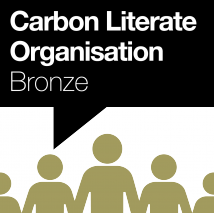Clothes Swap Cafe
In May 2024 we set up a Clothes Swap Cafe project, thanks to a grant from the Merseyside Recycling and Waste Authority‘s Zero Waste Community Fund. From June 2024 to March 2025 we worked with Indigo and other local organisations to run Clothes Swap Cafes at various locations across Wirral, providing a fun, community driven way to reduce waste and promote sustainability. We also ran workshops with activities focused on sustainable fashion and reuse, including making no sew T-shirt tote bags and scrunchies.
During the project, we held 12 Clothes Swap events and had a total of 3.1 tonnes of clothing donated, prolonging the lifespan of these garments and reducing the need to buy new ones. It has been a great pleasure to make connections with the people, venues and groups we have organised events with. This teamwork has inspired ideas for future collaborations and we look forward to new opportunities to educate about the impact of fashion and clothing and demonstrate solutions.
If you would like to organise a Clothes Swap event, we have rails, hangers and display shelves you can borrow. We can also give advice and help you publicise the event. Please email wen@la21.net for more details.
We made a photo montage from our Clothes Swap Cafés at NEO Community in June and at Indigo in July. We hope it gets across the fun atmosphere of the events, the range of items donated and the positive reaction from visitors to the idea of swapping clothes.
Clothes Swap Events
Clothes Swap
Saturday 29th March
Quirky Community Hub
124e Market St, Hoylake, Wirral, CH47 3BH
Clothes Swap Cafe
Saturday 22nd March
Wirral Environmental Network
Sandon Building, Falkland Road, Wallasey, CH44 8ER
Wardrobe Talk from Recreational Wardrobe CIC and Clothes Swap with ZERO Fashion CIC
Saturday 22nd February
Quirky Community Hub
124e Market St, Hoylake, Wirral, CH47 3BH
Clothes Swap Café
Saturday 15th February
40 Wallasey Village, Wallasey CH44 2DH
Sustainable Fashion Workshop
Tuesday 11th February
Clothes Swap Cafe
Saturday 1st March
Wirral Environmental Network
Sandon Building, Falkland Road, Wallasey, CH44 8ER
Clothes Swap Cafe
Friday 6th December
Indigo
136 Bedford Road, Rock Ferry, CH42 2AS
Clothes Swap
Saturday 30th November
Quirky Community Hub
124e Market St, Hoylake, Wirral, CH47 3BH
Sustainable Fashion Workshop
Tuesday 5th November
Clothes Swap Café
Saturday 16th November
Wirral Environmental Network
Sandon Building, Falkland Road, Wallasey, CH44 8ER
Sustainable Fashion Workshop
Tuesday 8th October
Clothes Swap Café
Friday 11th October
St James Centre
344 Laird Street, Birkenhead, CH41 7AL
Sustainable Fashion Workshop
Friday 20th September
Clothes Swap Café
Monday 23rd September
Indigo
136 Bedford Road, Rock Ferry, CH42 2AS
Clothes Swap
Saturday 20th July
Neo Community
Beaconsfield Community House, Rock Ferry, CH42 3YN
Sustainable Fashion Workshop
Wednesday 19th June
Clothes Swap Café
Wednesday 26th June
The Environmental Costs of Fast Fashion
A 2021 report by Merseyside Recycling and Waste Authority found that in Wirral our green bins contained an average of 220g of textiles per household per week – 5% of all waste. 76% of this is clothing and shoes which are still in good enough condition to be worn.
Growing the cotton and dyeing the materials for one pair of jeans and one T-shirt can use up to 20,000 litres of water. It would take you over 13 years to drink this amount!
Thanks to Waterwise for this statistic in the section on their website about embedded water in the fashion industry.
Sourcing pre-loved clothing instead of buying new is a great way to save water resources.
Did you know that the fashion industry is responsible for 10% of annual global carbon emissions? Or that textile production contributes more to climate change than international aviation and shipping combined?
Instead of shopping for new clothes, finding ways to keep wearing the ones we have or buying or swapping pre-loved items can greatly reduce the environmental impact of our style choices.
– If we could double the lifespan of garments, we would reduce the fashion industry’s greenhouse gas emissions by 44%.
In 2022, a study by WRAP calculated that the nation’s wardrobes hold 1.6 billion items of unworn clothes. The average UK adult has 118 items of clothing in their wardrobe and 26% of these were unworn for at least a year.
All these unworn clothes are a huge resource we can use, which presents a great opportunity to reduce the impact of the fashion industry on the environment.
There are even some unexpected benefits to not buying new… WRAP found that when we choose pre-loved, second-hand and vintage clothes, we tend to keep these items nearly a year and a half longer than those we purchase new (average of 5.4 years for vintage and pre-loved clothes, compared to 4 years for off the peg). If we repair an item of clothing, we’ll typically keep it for a further 1.3 years.








